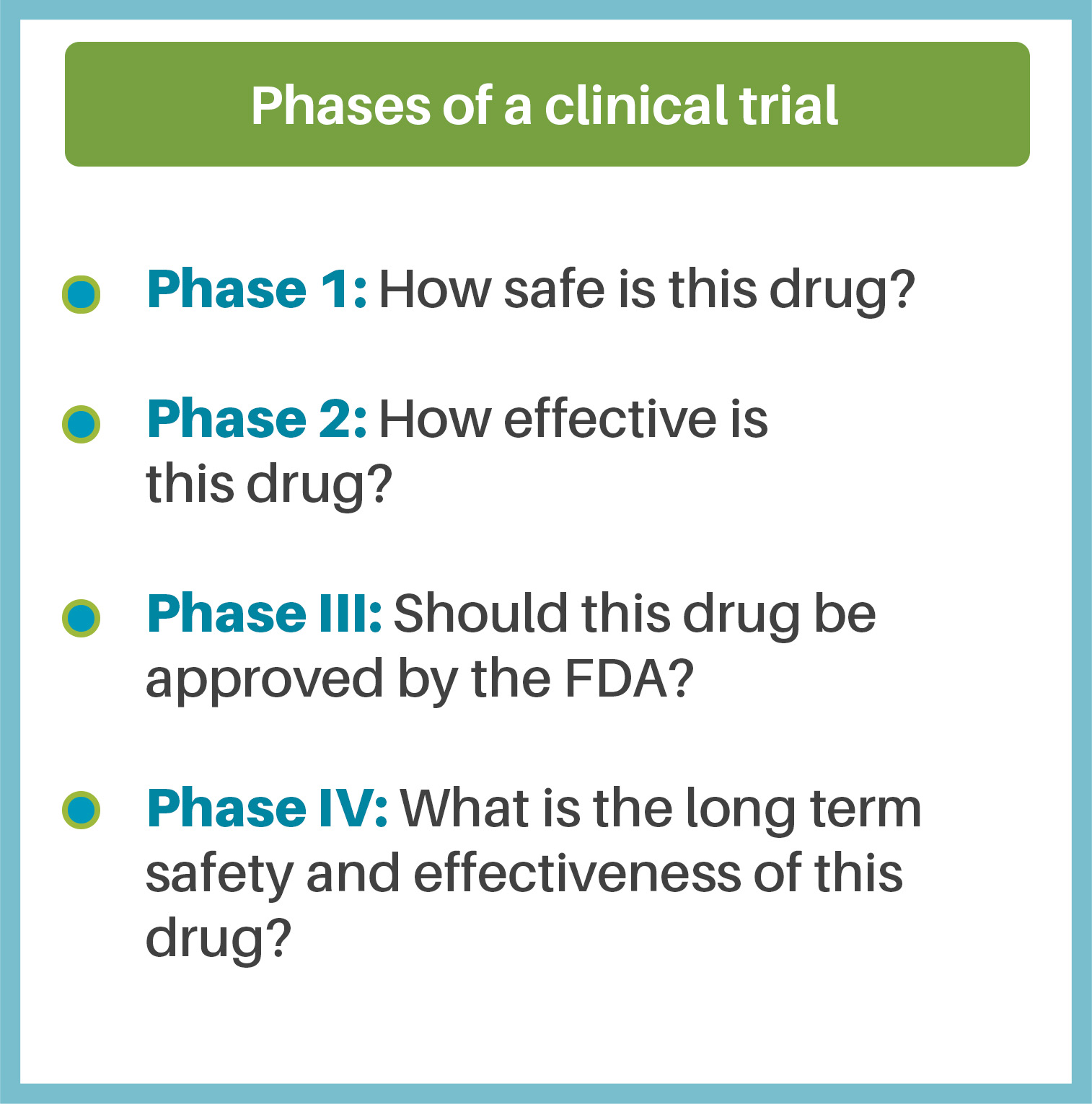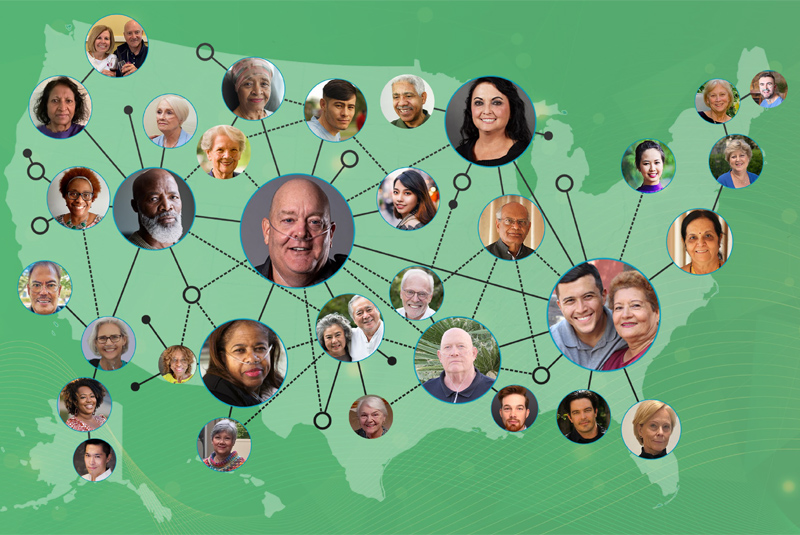PF Basics: Info for Newly Diagnosed Patients

Research and clinical trials
Top takeaways
- Research is the route to discovering new drugs and other treatments, improving quality of life, and ultimately finding a cure for pulmonary fibrosis (PF).
- For research to succeed, it’s essential for many people living with PF to choose to participate in clinical trials.
- When you volunteer for a clinical trial, there are many tools in place to protect your safety and well-being, and you may benefit from access to a potential new PF medication or have increased clinic visits that give you a fuller view of your disease and its progression.
- An easy way to participate in PF research is to join the online-only Pulmonary Fibrosis Foundation (PFF) Community Registry, which collects self-reported data from participants to be used by researchers.
The importance of PF research—and why your participation matters
For the PF community, research offers answers to questions that could change the future of how pulmonary fibrosis is treated: How well does a new drug work or not work? Is there a better way to treat PF? Do different patients with PF benefit from different types of drugs or treatments? How do genes and people’s environments—where they live, what jobs they do, how active they are—affect those living with PF? Research is the pathway to finding new therapies, improving quality of life, and ultimately finding
a cure for pulmonary fibrosis.
Researchers have made great strides in better understanding and treating the disease. But there is much more to learn—and the best way to help ensure these important discoveries will continue is to join a clinical trial or research study.
People living with PF may find several advantages to joining a clinical trial. Participants may obtain access to a potential new PF medication and receive valuable education about improving their health. Increased clinic visits and testing usually associated with a clinical trial may give participants a clearer picture of the state of their disease and progression. Many PF clinical trial participants say that even if joining a trial doesn’t directly benefit them, they view it as an important step on the road to helping future patients with PF. Watch a short video.

All about clinical trials
Clinical trials can take several forms. The most common are interventional studies, in which participants are assigned to a drug or treatment and their outcomes measured, and observational studies, in which participants are observed without being given a drug or treatment and their outcomes measured. The PFF Community Registry (see section below) is an example of an observational study.
Clinical trials have four phases:
- Phase I—Researchers test a new drug or treatment in a small group of people to evaluate its safety, determine a safe dosage range, and identify side effects.
- Phase II—The drug or treatment is given to a larger group of people to further test its safety and effectiveness.
- Phase III—The drug or treatment is given to large groups of people to confirm effectiveness, monitor side effects, and compare it to commonly used treatments or placebos (sometimes called “sugar pills”). At the end of Phase III, the research results are carefully reviewed by the US Food and Drug Administration (FDA), which is responsible for approving all new drugs and treatments.
- Phase IV—If the drug is approved for use by the FDA, additional studies gather information on its effectiveness in different populations and any long-term side effects.
When you volunteer for a clinical trial, you’ll have several tools in place to protect your safety and well-being. Before joining, you’ll be provided with information about the potential benefits, risks, and alternatives to participating. Even after you’ve provided written consent, you may still withdraw from a study at any time. Also, every study of a drug or device regulated by the FDA is carefully reviewed and monitored by an institutional review board, which makes sure the study is ethical, risks are minimized, and the rights and welfare of participants are protected.
Download a booklet on clinical trials, visit our Clinical Trials Education Center, search for a clinical trial, or watch a short video. To learn more about the status of potential PF drugs currently in clinical trials, visit the PF Drug Development Pipeline.

PFF Community Registry
An easy way to make a valuable contribution to PF research is by enrolling in the PFF Community Registry. Participation is entirely online and takes just two hours a year.
A registry collects and tracks information about the health status of patients and the care they receive. Unlike a clinical trial, where subjects must follow a specific treatment protocol, a registry doesn’t prescribe treatments or require additional medications or visits. It simply captures real-world data to help researchers learn about actual care patterns, observe subjects, and measure and improve quality of care. Researchers can request access to this information to evaluate contributing factors, treatment outcomes,
and more.
To enroll, you’ll answer simple questions about your experience, including demographics, diagnosis, education and employment, and environmental exposures. You’ll receive a follow-up survey every six months. The initial enrollment survey and follow-up surveys each take about an hour to complete.
The PFF Community Registry takes the protection of your privacy seriously. Participants enter their information via a secure, HIPAA-compliant, online portal, using the same technology trusted by doctors’ offices, hospitals, and clinical trials worldwide. How much information you want to share with researchers is up to you. Read more or watch a five-minute video. Ready to enroll? Join the PFF Community Registry today.

Patient Stories
Next Steps
Thank you for participating in the Newly Diagnosed Patient Program!
We'd love to hear your feedback about your experience. Please take a few minutes to take our survey.
